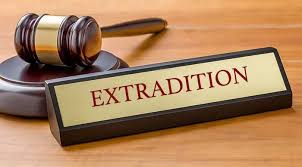
Choosing the Right Lawyer for Money Laundering Defense
If you are facing charges related to money laundering, finding an experienced lawyer for money laundering defense is paramount. Money laundering is a serious offense that carries severe penalties, and the complexities involved in defending such cases can be overwhelming. This article will guide you through the essential aspects of selecting the right legal representation and what to expect during the process.
Understanding Money Laundering
Money laundering involves disguising the origins of illegally obtained money, typically by passing it through a complex sequence of banking transfers or commercial transactions. The goal is to make the money appear legitimate. Laws against money laundering have become increasingly stringent, with authorities keen on tracking and prosecuting offenders. Understanding the definitions and implications of money laundering is crucial when preparing for your defense.
The Importance of a Qualified Lawyer
Facing a money laundering charge without a seasoned attorney can be incredibly risky. A qualified lawyer specializing in financial crimes will have the expertise and experience necessary to navigate the complexities of the law. They can help you understand the charges against you, the legal frameworks involved, and the best strategies for your defense.
Key Qualities to Look for in a Lawyer
- Experience: Look for a lawyer with a proven track record in handling money laundering cases. Their familiarity with similar cases can provide insights into potential outcomes and defense strategies.
- Specialization: Ensure your lawyer specializes in financial crimes or money laundering. Specialized knowledge can make a significant difference in the approach taken in your case.
- Communication Skills: Your lawyer should be able to explain complex legal terms in understandable language and keep you updated on your case’s progress.
- Reputation: Research their reputation in the legal community. Look for reviews or case studies demonstrating their capability and success rate.
- Personal Rapport: It is vital to have a lawyer you can trust and communicate with easily. Personal rapport can significantly ease the stress of facing legal charges.
Initial Consultation
Once you’ve identified potential lawyers, the next step is to schedule an initial consultation. This meeting allows you to present your case’s details and provides an opportunity to assess the lawyer’s approach and compatibility. Prepare questions ahead of time to ensure you cover all important aspects. Some questions to consider asking include:
- What is your experience with money laundering cases?
- What strategy would you employ for my defense?
- What are your fees, and how do you bill for your services?
- Can you provide references from past clients?
Understanding the Legal Process
The legal process for money laundering charges can vary significantly depending on the complexity of the case and the jurisdiction. Generally, the process begins with an investigation, followed by charges being filed against you. During this time, your lawyer will work to gather evidence, file motions, and prepare you for court appearances.
Key Stages of the Process
- Investigation: Authorities will gather evidence which may include bank records, transaction histories, and witness statements.
- Charges: If evidence supports the claim, formal charges will be brought against you.
- Pre-Trial Motions: Your lawyer may file motions to dismiss the case or suppress evidence that was unlawfully obtained.
- Trial: If the case goes to trial, both sides will present their evidence and arguments before a judge or jury.
- Sentencing: If found guilty, the judge will impose a sentence that may include fines, restitution, or prison time.
Pleas and Negotiations
In many cases, your lawyer may advise you to consider a plea bargain, which can reduce your charges or sentence in exchange for a guilty plea. This option can be beneficial, particularly if the evidence against you is strong. Your lawyer will help you evaluate the pros and cons of this approach and negotiate the best possible terms on your behalf.
Potential Defenses
There are several defenses that a qualified lawyer might employ in a money laundering case. These can include:
- Lack of Knowledge: Arguing that you were unaware of the illegal status of the funds.
- Innocent Owner: Proving that you had no knowledge or control over the illicit source of funds.
- Insufficient Evidence: Challenging the prosecution’s evidence to demonstrate that it does not satisfy the burden of proof.
Conclusion
Selecting the right lawyer for your defense against money laundering charges is crucial for achieving the best possible outcome. By thoroughly researching potential candidates, understanding the legal process, and being prepared to discuss your case in detail, you can make an informed decision. Remember, engaging a specialized attorney can not only ease the burden of legal proceedings but also significantly enhance your chances of a favorable resolution.